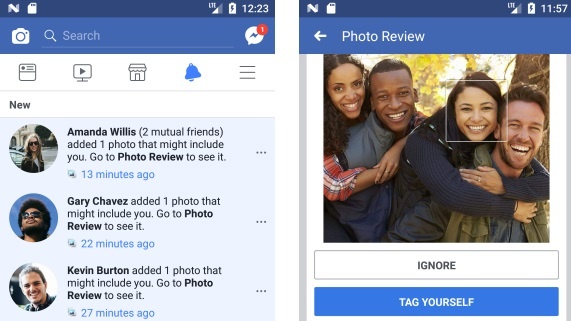Facebook now lets you know if you're in photos even if you're not tagged

If you're one of those poor saps who often gets told you look like someone else, get ready for a barrage of notifications from Facebook saying someone uploaded a photo of you.
That, at least, is the worst-case scenario for Facebook's latest feature, which automatically notifies you if anyone uploads a photo that looks like you're in it. In line with ongoing advancements in facial recognition technology, Facebook will do this even if you're not tagged.
The feature likely won't be as annoying as described above, as Facebook's announcement post claims it only notifies you if "you're in a photo and part of the audience for that post," which presumably means if it was taken by a friend or a friend of a friend.
It's also not exactly a new feature; rather, it's a new application of an existing one. In Facebook's words, it's "powered by the same technology we’ve used to suggest friends you may want to tag in photos or videos."
Naturally there are fun reasons for a feature like this, such as when someone posts of a photo from a family outing you may have attended, allowing you to keep a photo you may not have seen otherwise. Facebook adds that the new feature improves the site's accessibility options for visually impaired users, as it allows the app to describe who's in the photo even if everyone isn't tagged.
Caught in the act
But Facebook doesn't shy from explaining that this service could also be used to catch people who are using photos for less-than-wholesome purposes, such as using your photo as their Facebook profile photo.
"We’re doing this to prevent people from impersonating others on Facebook," Facebook says, referring to a common problem that's more colloquially known as "catfishing."
Sign up for breaking news, reviews, opinion, top tech deals, and more.
If you don't want Facebook to recognize your face, though, you'll soon be able to disable the site's ability to refer to your profile photos and videos for identification purposes.
You won't be granted the same level of control over this feature as you get with Facebook's labyrinthine privacy settings, though, as the option merely comes with a "simple on/off switch" that will shut down the whole feature.